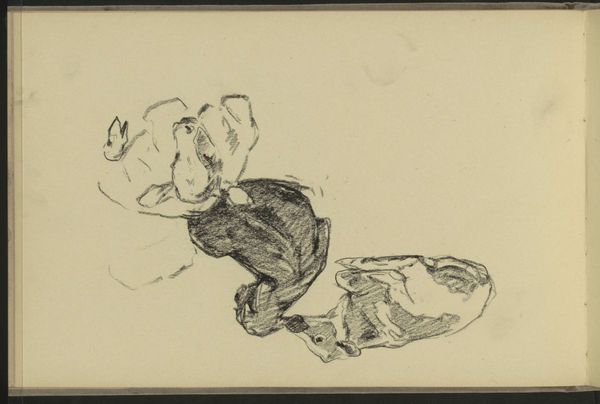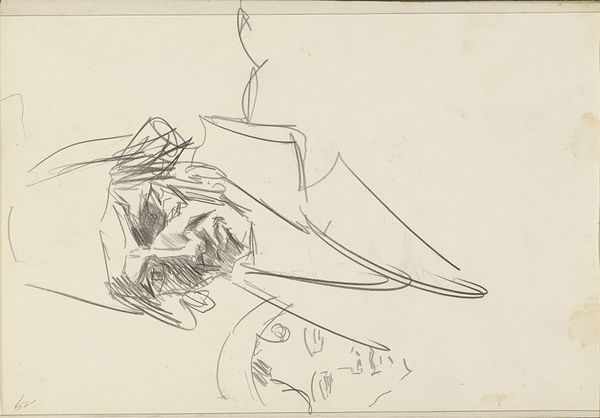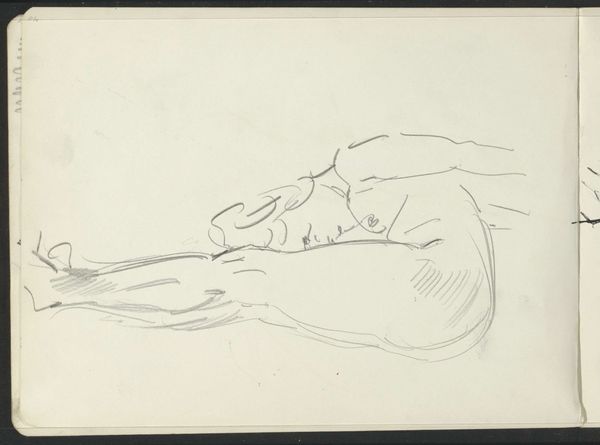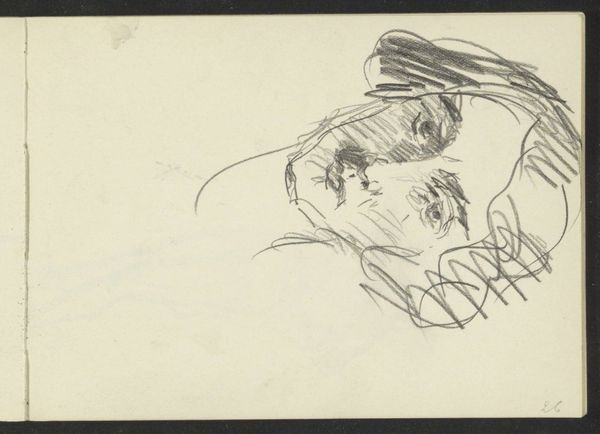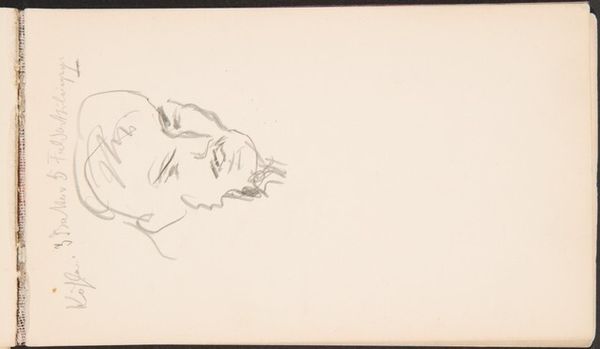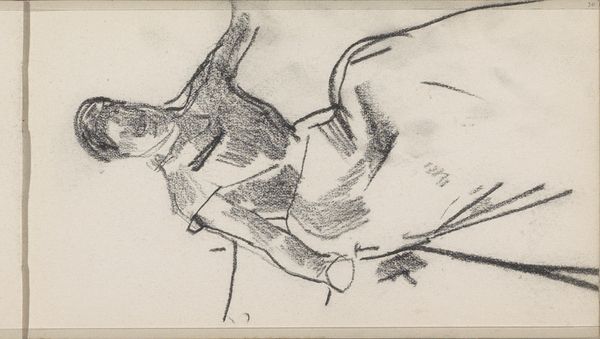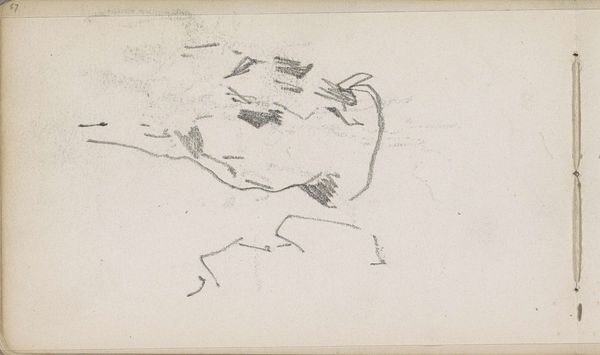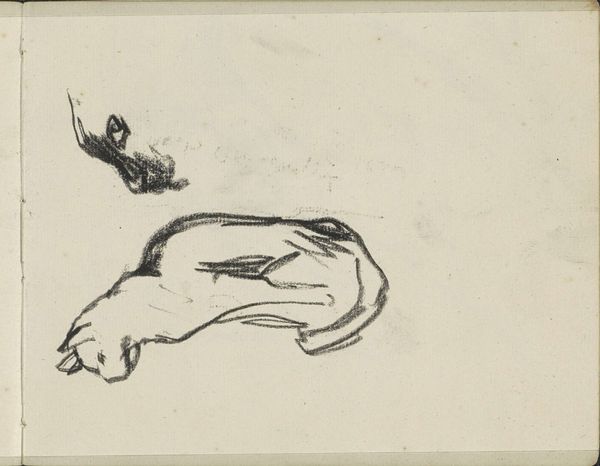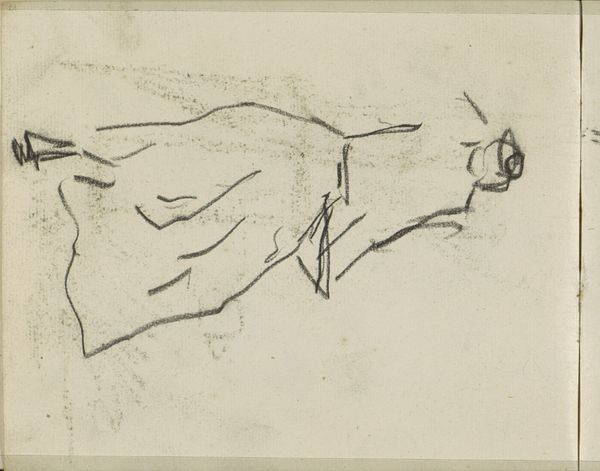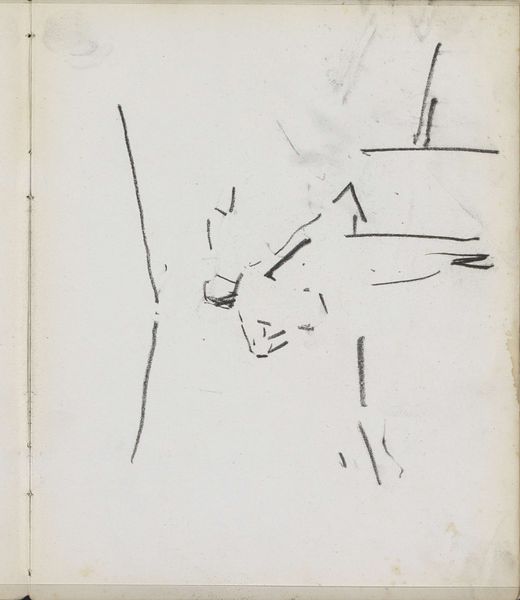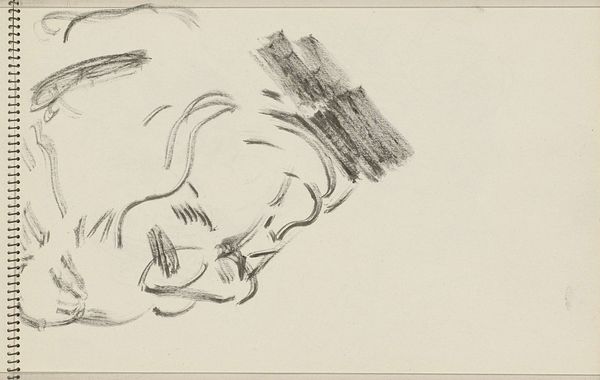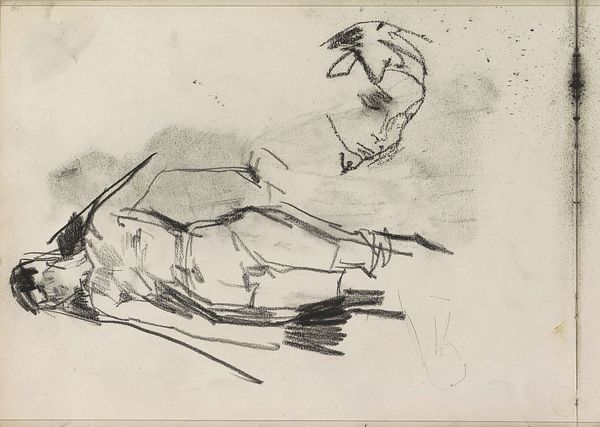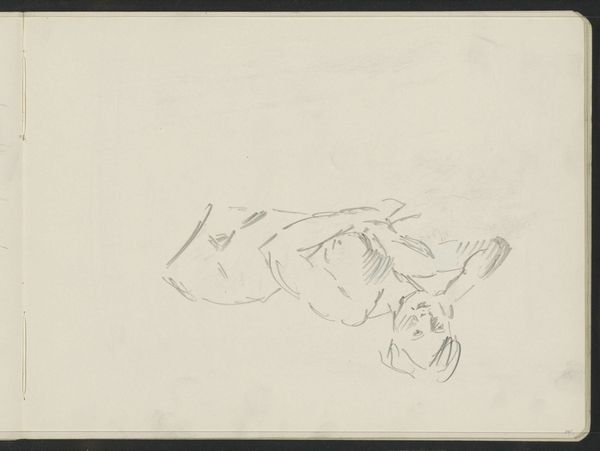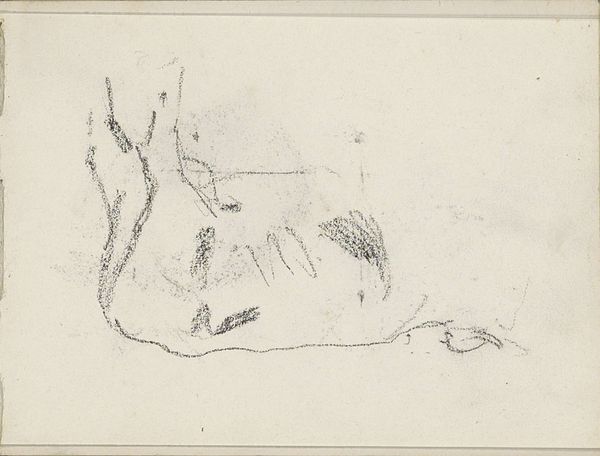![Self-Portrait (Selbstbildnis) [p. 3] by Max Beckmann](/_next/image?url=https%3A%2F%2Fd2w8kbdekdi1gv.cloudfront.net%2FeyJidWNrZXQiOiAiYXJ0ZXJhLWltYWdlcy1idWNrZXQiLCAia2V5IjogImFydHdvcmtzLzc5NjAwN2JlLTQ1NzktNGY4MC1hMzkxLWM1MDk1ZmQ3MGY2Yi83OTYwMDdiZS00NTc5LTRmODAtYTM5MS1jNTA5NWZkNzBmNmJfZnVsbC5qcGciLCAiZWRpdHMiOiB7InJlc2l6ZSI6IHsid2lkdGgiOiAxOTIwLCAiaGVpZ2h0IjogMTkyMCwgImZpdCI6ICJpbnNpZGUifX19&w=1920&q=75)
drawing, ink, pen
#
portrait
#
drawing
#
ink drawing
#
self-portrait
#
pen drawing
#
pen illustration
#
pen sketch
#
figuration
#
personal sketchbook
#
ink
#
ink drawing experimentation
#
pen-ink sketch
#
expressionism
#
pen work
#
sketchbook drawing
#
pen
#
sketchbook art
Copyright: National Gallery of Art: CC0 1.0
Curator: Let's discuss this evocative self-portrait by Max Beckmann. It's rendered in ink on paper and is one page of what seems to be a sketchbook. Editor: It strikes me immediately as an incredibly vulnerable depiction. The loose, almost frantic linework makes the figure appear uneasy, exposed. The head is tilted back as if in surrender or maybe defiance. Curator: That raw energy is characteristic of Beckmann’s work, especially during periods of intense personal or societal upheaval. Though undated, the stark style gestures towards German Expressionism and the artist's preoccupation with existential themes prevalent across Europe in the first half of the twentieth century. Editor: It certainly evokes that postwar anxiety. The prominent hand gesture, index finger raised, feels almost accusatory. Who is he pointing at? Is it himself? Society? It speaks to themes of judgement and moral questioning. And why that combination – a portrait beside the index? There has to be an intentional dichotomy present in this layout. Curator: I see your point. He was deeply affected by his experiences during the First World War, which might explain the feeling of moral reckoning you're picking up on. But to simply state Beckmann’s experience is one to assume that any viewer will have that knowledge as well – what kind of responsibility should an artist have toward their audience to relay personal stories while challenging socio-cultural ones? What socio-economic and cultural backgrounds are already known versus what information has been lost with the test of time? Editor: Absolutely, context is everything, which reminds us how crucial is for the museum to present more holistic information, otherwise it ends up curating incomplete stories. I wonder how intentional that was on Beckmann’s part to use this fragmented perspective. Perhaps, for many, to be haunted by an artistic statement may allow the individual to create unique meaning of its purpose through contemporary theories. Curator: This reminds us to seek out voices that were systemically not allowed a seat at the table when assessing artwork such as Beckmann's work. The dialogue opens to broader discussion of social justice, historical erasure, the burden of proof – and more broadly, ethics – with an increased awareness to diversity. Editor: Looking closer at this specific work, that very tension between public expression and private turmoil is really where its power resides, regardless of the year it was created. Curator: Agreed. It challenges viewers, generations apart, to reflect on personal responsibility within the chaos of history.
Comments
No comments
Be the first to comment and join the conversation on the ultimate creative platform.
